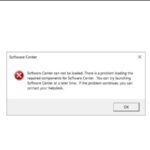The Ultimate Guide to Online MSN Programs: Finding the Perfect Fit for Your Needs
In the dynamic and ever-evolving healthcare landscape, obtaining a Master of Science in Nursing (MSN) degree is a highly sought-after credential that can enhance your career prospects and position you as a leader in the field. With the advent of online learning platforms, pursuing an MSN degree has become more accessible and flexible than ever before. This comprehensive guide will delve into the intricacies of online MSN programs, empowering you to navigate the diverse options available and make an informed decision that aligns with your career aspirations and personal circumstances.
The Rise of Online MSN Programs: A Paradigm Shift in Nursing Education
Gone are the days when nurses seeking advanced education were limited to traditional brick-and-mortar institutions. Online MSN programs have revolutionized nursing education, offering a multitude of benefits that cater to the needs of working professionals and individuals seeking greater flexibility and accessibility:
- Flexibility and Convenience: Online programs provide unparalleled flexibility, allowing students to learn at their own pace and on their own schedule. This is a boon for working nurses who may not have the time or resources to attend traditional classes.
- Accessibility: Geographic limitations are effectively eliminated with online learning, making it possible for nurses across the globe to access high-quality education from prestigious institutions.
- Affordability: Online programs often come with lower tuition fees and reduced costs associated with commuting and living expenses.
- Technology-Enhanced Learning: Online programs leverage cutting-edge technology, offering interactive simulations, virtual labs, and other engaging learning tools.
- Diverse Specializations: Online programs offer a wide range of specializations, allowing students to tailor their education to their specific interests and career goals.
Types of Online MSN Programs: A Spectrum of Opportunities
Online MSN programs are categorized into various specializations, each offering a distinct set of skills and knowledge that can lead to diverse career paths. Understanding these specializations is crucial for identifying the program that aligns with your career aspirations:
1. Nurse Educator
The Nurse Educator track prepares nurses to become educators in various settings, including universities, hospitals, and community health centers. This specialization equips students with the pedagogical skills to design, implement, and evaluate nursing curriculum, mentor students, and contribute to the advancement of nursing education.
2. Nurse Practitioner
The Nurse Practitioner specialization is a popular choice for nurses seeking to expand their clinical practice and provide direct patient care. Students in this track acquire advanced clinical knowledge and skills to diagnose and manage a wide range of health conditions, prescribe medications, and order diagnostic tests.
- Family Nurse Practitioner (FNP): FNPs provide comprehensive care to patients of all ages, focusing on primary care, preventive medicine, and managing chronic conditions.
- Adult-Gerontology Nurse Practitioner (AGNP): AGNPs specialize in providing care to adults and older adults, addressing complex health concerns, and promoting healthy aging.
- Pediatric Nurse Practitioner (PNP): PNPs focus on the health care needs of children, from infancy to adolescence, providing primary and specialized care.
- Psychiatric-Mental Health Nurse Practitioner (PMHNP): PMHNPs assess, diagnose, and treat mental health disorders in adults, children, and adolescents, utilizing evidence-based therapies and medications.
3. Nurse Administrator
The Nurse Administrator track focuses on developing the leadership skills needed to manage nursing units, departments, and healthcare organizations. Students gain expertise in healthcare policy, financial management, quality improvement, and leading multidisciplinary teams.
4. Nurse Informatics
Nurse Informatics combines nursing knowledge with information technology, enabling nurses to utilize data and technology to improve patient care, enhance efficiency, and drive innovation in healthcare systems. Students in this specialization learn to design, implement, and evaluate electronic health records, develop clinical decision support systems, and analyze healthcare data.
5. Nurse Anesthetist
The Nurse Anesthetist track prepares nurses to become Certified Registered Nurse Anesthetists (CRNAs), who provide anesthesia services to patients undergoing surgery and other medical procedures. This highly specialized program requires rigorous training and clinical experience, culminating in a national certification exam.
6. Nurse Researcher
The Nurse Researcher specialization equips nurses with the skills and knowledge to conduct research studies, contribute to the evidence-based practice of nursing, and advance the body of knowledge in the field. Students learn research methodologies, statistical analysis, and data interpretation.
Factors to Consider When Choosing an Online MSN Program
With a plethora of online MSN programs available, choosing the right program is crucial for maximizing your educational investment and achieving your career goals. Consider these key factors:
1. Program Reputation and Accreditation
The reputation and accreditation of the institution offering the program are paramount. Look for programs accredited by the Commission on Collegiate Nursing Education (CCNE) or the Accreditation Commission for Education in Nursing (ACEN). These accreditations ensure that the program meets rigorous standards of quality and prepares graduates for successful careers.
2. Faculty Expertise and Experience
The faculty of the program should be highly qualified, experienced, and actively engaged in their field. Look for faculty with strong research backgrounds, clinical expertise, and a commitment to student success.
3. Curriculum and Coursework
The curriculum should be comprehensive, up-to-date, and relevant to the chosen specialization. Consider the specific courses offered, the learning outcomes, and the alignment with your career goals.
4. Technology and Learning Platforms
Assess the technology and learning platforms used in the program. Look for a robust learning management system (LMS) that offers interactive features, easy navigation, and reliable technical support.
5. Student Support Services
Online programs should provide comprehensive student support services, including academic advising, career counseling, tutoring, and technical assistance. This support system is crucial for students navigating the challenges of online learning.
6. Clinical Experiences and Practicum Requirements
Ensure that the program includes sufficient clinical experiences and practicum requirements to prepare graduates for real-world settings. Look for programs that offer a variety of clinical placement opportunities, including those in your preferred area of practice.
7. Program Cost and Financial Aid
Compare the tuition fees, program length, and financial aid options of different programs. Look for programs that offer scholarships, grants, and payment plans to make the program more affordable.
8. Flexibility and Time Commitment
Consider the flexibility and time commitment required by the program. Online programs offer varying levels of flexibility, from asynchronous courses that can be completed at your own pace to synchronous courses that require live attendance.
Benefits of an Online MSN Program
Pursuing an online MSN degree offers numerous benefits, making it an attractive option for nurses seeking career advancement and professional growth:
- Increased Earning Potential: Nurses with an MSN degree typically earn higher salaries than those with a Bachelor of Science in Nursing (BSN). This financial advantage can significantly impact your career trajectory and long-term financial stability.
- Expanded Career Opportunities: An MSN opens doors to a wider range of nursing roles, including advanced practice registered nurses (APRNs), nurse educators, nurse administrators, and nurse researchers.
- Enhanced Leadership Skills: MSN programs develop critical leadership skills, such as communication, problem-solving, decision-making, and strategic thinking. These skills are highly valuable in today’s healthcare environment.
- Greater Job Security: The demand for highly skilled and educated nurses is expected to continue to grow in the coming years. An MSN degree can enhance your job security and make you more competitive in the job market.
- Personal and Professional Growth: Pursuing an MSN program can stimulate your intellectual curiosity, foster a deeper understanding of nursing practice, and promote personal and professional growth.
Conclusion: Embracing the Future of Nursing Education
Online MSN programs have transformed nursing education, making it accessible, flexible, and technologically advanced. By carefully considering the factors discussed in this guide, you can identify the program that best suits your career aspirations, learning style, and personal circumstances. Embracing online learning is a wise investment in your future, equipping you with the knowledge, skills, and credentials to excel in the dynamic and evolving healthcare landscape.







